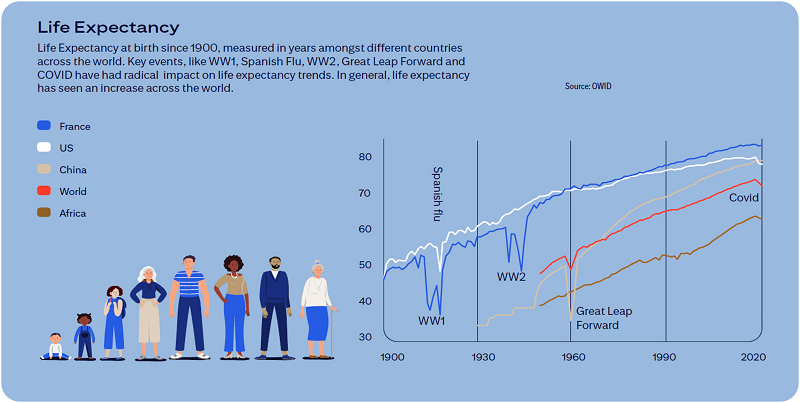Future of Healthcare

The average global citizen born today will live almost 30 years longer than one of their forebears born in 1950, one of humanity’s most astonishing achievements.
But the global healthcare system’s vital signs have deteriorated recently. Life expectancy in many western countries has stalled over the past 15 years, worsening through the pandemic. And a shocking rise in population obesity and an expected rapid increase in dementia is storing up future pain.
A rapidly aging population is already driving healthcare system costs to potentially unsustainable levels, and in many advanced economies the cost of healthcare as a proportion of GDP has more than doubled in the past 30 years.
The Oxford Prescription draws on the insights and expertise of 17 leading Oxford University professors, looking at ways in which global healthcare can be improved, examining population health, the balance between primary and secondary care, and how new data and technologies could revolutionize the delivery of healthcare.
The fact is healthcare today still largely works by treating problems after symptoms become serious. The core of The Oxford Prescription is to use newly developed techniques to address medical issues as early as possible, not after symptoms appear.
The science behind these techniques — like polygenic risk scoring and liquid biopsies — is not 100% settled. But things look promising.
The Oxford Prescription demands a significant reorganization of healthcare delivery and drug development, as well as better use of digital technologies. It also calls for more aggressive use of public health measures.
The basic tenets of The Oxford Prescription are:
- Address medical issues as early as possible
- Reorganize how healthcare is delivered
- Leverage digital technology
- Focus drug development on large populations
- More aggressive public health measures, particularly on obesity
- Ensure we’re prepared for future outbreaks and pandemics
The Oxford Prescription does not rely on major new breakthroughs: it is mostly about applying and developing what we already know. That said, major developments in medicine are likely in the coming decades — there’s no reason to expect science and progress to stall.
The report covers a huge range of topics, from drug discovery to biomedical engineering, public health and nutrition to genetic studies, immunology to tropical & infectious diseases, and much more. It is essential reading for anyone interested in the future of the global healthcare system.
To read the full report, click here.
